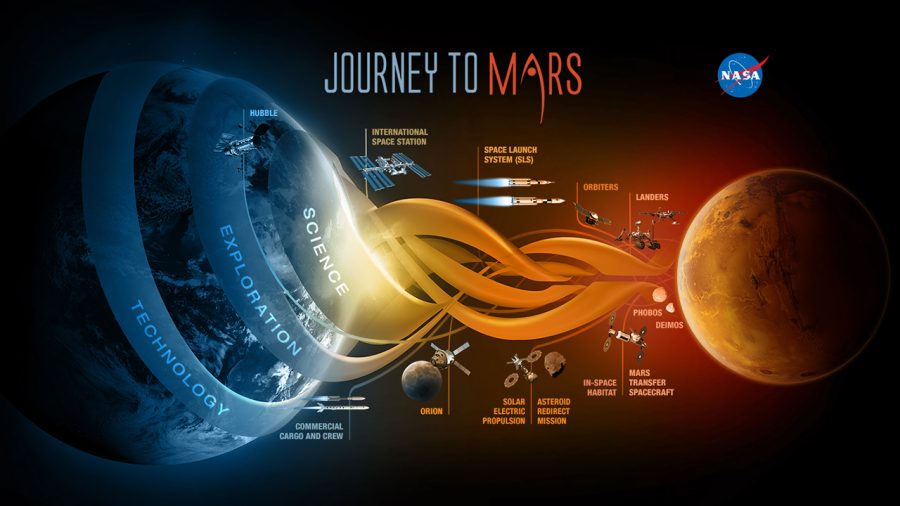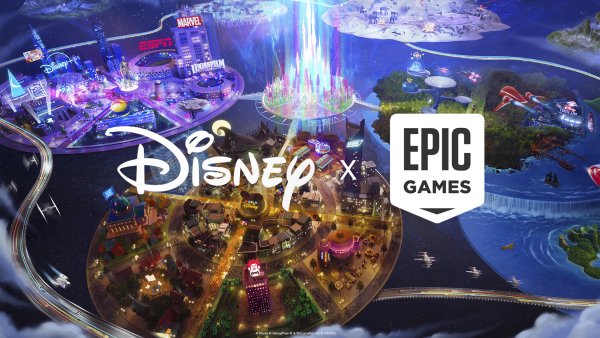The Future of Mankind on Mars
NASA’s rough sketch of how they will get to Mars.
January 22, 2018
With NASA advancing more technology, the near future of mankind on Mars is getting closer and closer every year. Mars is the closest planet that can possibly be habitable by humans. NASA plans on sending humans there on a one way trip in the 2030s (NASA). The trip to Mars is to see if humans really can survive there in the case that Earth is no longer in living conditions. As the growing number of studies and research progresses, it is very intriguing to learn about the Red Planet and its newfound information.
Biologists at Wageningen University are testing crops in the martian-like soil to see if they will grow in these states (NBC). The soil is made of volcanic terrestrial rocks made by NASA. Pig manure and infant worms are added to the soil as well (NBC). Eating the dead organic matter, the worms help fill the Martian dirt with nutrients needed for proper plant growth. Even though it is not natural for plants on Mars, the soil can be efficiently used in a closed environment. It is great news for the future knowing that worms can fertilize plants and reproduce in such unorthodox conditions.
The NASA shuttle Orion will go to the moon in 2019 before going to Mars (Newsweek). President Trump signed the Space Policy Directive 1 on December 12, which officialized the mission. Orion will bring astronauts to the moon for further exploration, in just. This is the first time in 48 years that astronauts will go to the moon. After going to the moon, Orion is set to take astronauts to an asteroid. This spacecraft will be a veteran in the sky when it will take astronauts on the first mission to Mars. Because Orion’s trip to Mars is its third, Orion’s technology and bugs will be patched and fixed before take off to the Red Planet.
Mars can possibly be mankind’s other home. Because of its close proximity and some similar Earth conditions, if our home is no longer habitable, Mars will be the best option. Agreeing with that notion, Nick Deang (10) believes that “it is so interesting to witness technological advances for the mission to Mars. I am excited to see what happens in the future.” With the expansion of science and learning, people on Mars could possibly be a norm in the near future. In the end, the mission to Mars is closer than it seems and can be our new home away from home.





















